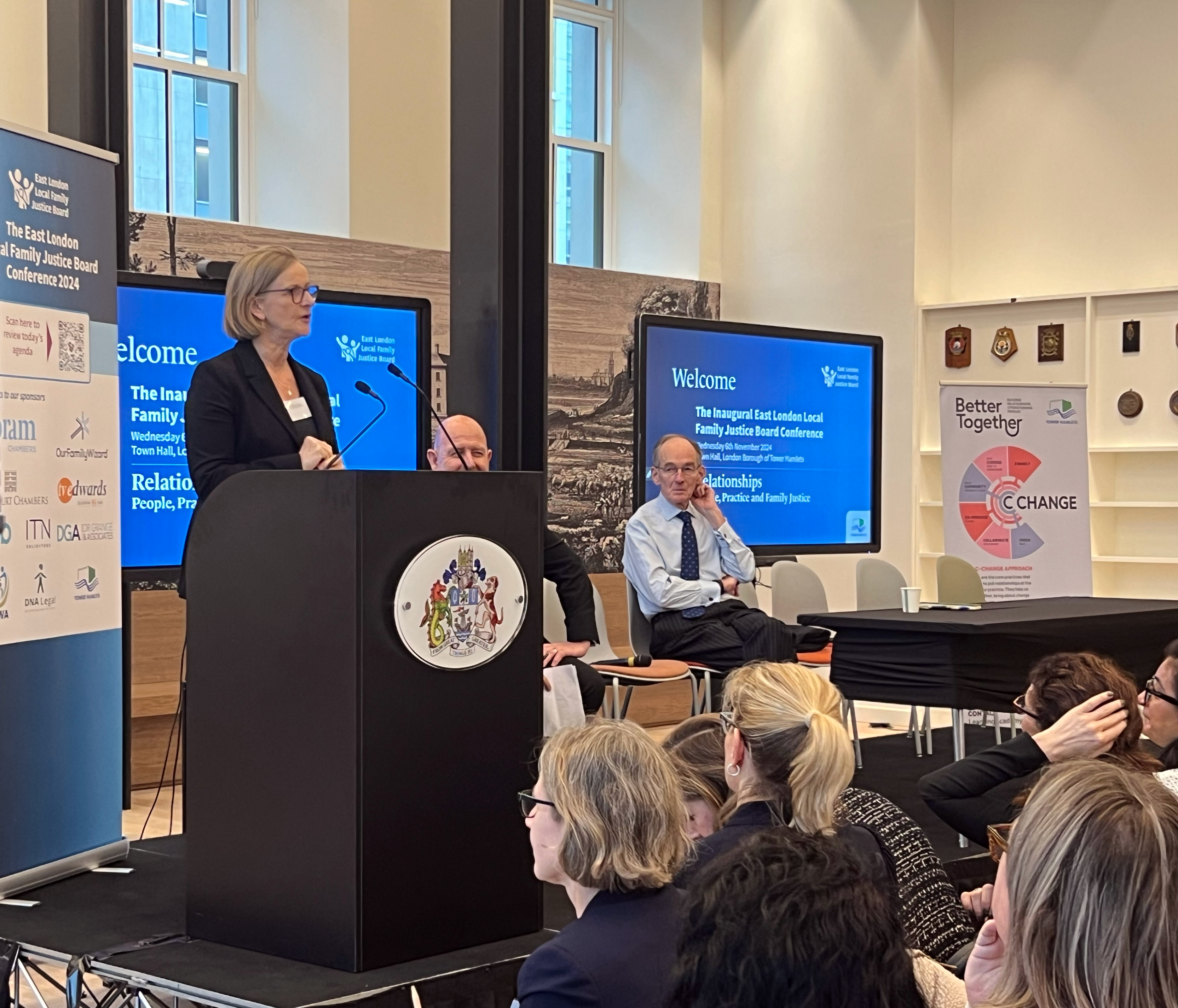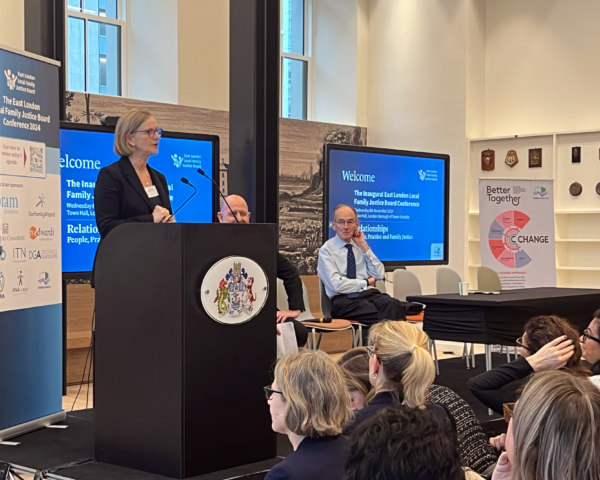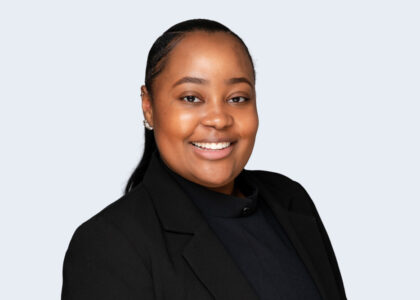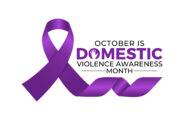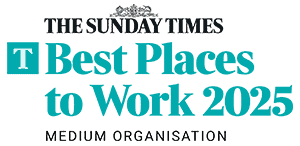A recap of the recent conference
The recent East London Family Justice Board’s Inaugural Conference, on Wednesday 6 November, brought together professionals from across different sectors for a day of learning, collaboration, and forward-thinking discussions. Hosted in Tower Hamlets, co-sponsored by TV Edwards Solicitors, the event featured a wide range of insightful sessions aimed at improving family law practices, enhancing communication, and advancing support for families in the justice system. Here’s a look back at the key highlights and takeaways from the event.
An inspiring start: opening remarks and keynote address
The day kicked off with an inspiring opening from Designated Family Judge HHJ Atkinson, who set the stage for a day of thought-provoking discussions and shared learning. This was followed by a warm welcome from Steve Reddy, Director of Children’s Services in Tower Hamlets, who emphasized the importance of continued partnership and innovative thinking in family justice work.
The keynote address, delivered by Sir Andrew McFarlane, President of the Family Division, was a clear highlight. Sir Andrew’s remarks underscored the need for ongoing collaboration between judges, legal professionals, social workers, and other stakeholders to ensure the best outcomes for families. He also emphasized the day’s focus on knowledge-sharing and learning, setting an encouraging tone for the sessions ahead.
Spotlighting local excellence in family justice
A particularly engaging session highlighted the remarkable work being done locally in family justice. Chaired by Victoria Roberts, the session brought together key figures from various initiatives making a tangible impact. Lisa Lucas from Lifelong Links initiative from Barking and Dagenham, Charlotte Moodie and Djamila Aggabi from the Diamond Project in Tower Hamlets, and Michael Radley from the Therapeutic Hub shared their experiences and successes in providing essential support to families. Their contributions were complemented by Dr. Amy Ludlow, Severine Aare from Shift in Bexley and Katie Walker from FDAC, who provided further insight into innovative approaches to supporting families navigating the justice system.
Building relationships in the most difficult cases – a conversation about risk
A session on managing risk in challenging family cases offered practical guidance, moderated by Alison Easton. Panelists Dr. Charles Musters, Dr. Gerard Drennan, and Rachel Sensicle shared real-life case studies, discussing strategies for balancing the complexities of risk management in sensitive family scenarios. Their insights were invaluable for those grappling with the delicate task of safeguarding children while addressing the often-difficult circumstances that arise in family proceedings.
Communication and neurodiversity: A thought-provoking discussion
Another session that sparked an important conversation was led by our Deborah Piccos on “Communication and Neurodiversity.” In this session, experts explored the challenges and best practices for engaging with families where neurodiversity plays a role. Panelists Sarah Cockburn (Cafcass), Alia Lewis (FLANC), Dr Sam Porter (perinatal psychiatrist) and Helena Ware ISW all shared practical advice and guidance. This session addressed how the sector can better address the unique needs of neurodiverse individuals in family proceedings.
Transparency and the media: A delicate balance
As the day unfolded, a particularly timely discussion on the relationship between transparency and media coverage was chaired by HHJ Reardon. Panelists such as HHJ Atkinson, Deirdre Fottrell KC, Amy Williams (A8 Consultancy), Samantha McKoy, (London Borough of Newham) and Katie Inman from the BBC shared their perspectives on balancing the public’s right to know with the need to protect family privacy. The discussion highlighted the growing tension between media coverage and the confidentiality of family law cases, leaving attendees with plenty to think about regarding future legal reforms in this area.
Networking and closing remarks
The event concluded with powerful closing remarks from Sir Alistair MacDonald, which reinforced the importance of continuous professional development and the shared responsibility of improving family justice. The final moments of the day allowed for informal networking over drinks, providing an opportunity for attendees to further engage with one another, discuss insights from the sessions, and reflect on the day’s learnings in a relaxed environment.
Looking ahead: A call for continued collaboration and innovation
As the conference wrapped up, it was clear that the future of family justice lies in ongoing collaboration, innovation, and a steadfast commitment to learning. The sessions provided invaluable insights into the challenges and opportunities within the sector, from managing risk in difficult family cases to enhancing communication with neurodiverse families.
Events like this one are essential for professionals to stay connected, share ideas, and inspire each other to think creatively about solutions. As we move forward, the lessons from this conference will undoubtedly have a lasting impact on the way professionals approach their work, ensuring better outcomes for families.
Key takeaways:
- Collaboration is key: The day emphasized the need for ongoing collaboration between judges, legal professionals, and social workers.
- Local initiatives make a difference: Local projects, such as Lifelong Links and the Diamond Project, are showing significant promise in supporting families.
- Risk management in family cases is complex: Real-life examples illustrated the delicate balancing act required when managing risk in family law.
- Neurodiversity needs more focus: There’s a growing recognition of the need for more tailored approaches to families with neurodiverse individuals.
- Media transparency remains a hot topic: The balance between media coverage and family privacy continues to be an area of debate and discussion.
 You & Your Family
You & Your Family You & Your Property
You & Your Property You & Your Business
You & Your Business
